
October 11, 2023
Organizers aimed to break down “binary, progressive versus backwards” narrative about queerness in Israel and Palestine
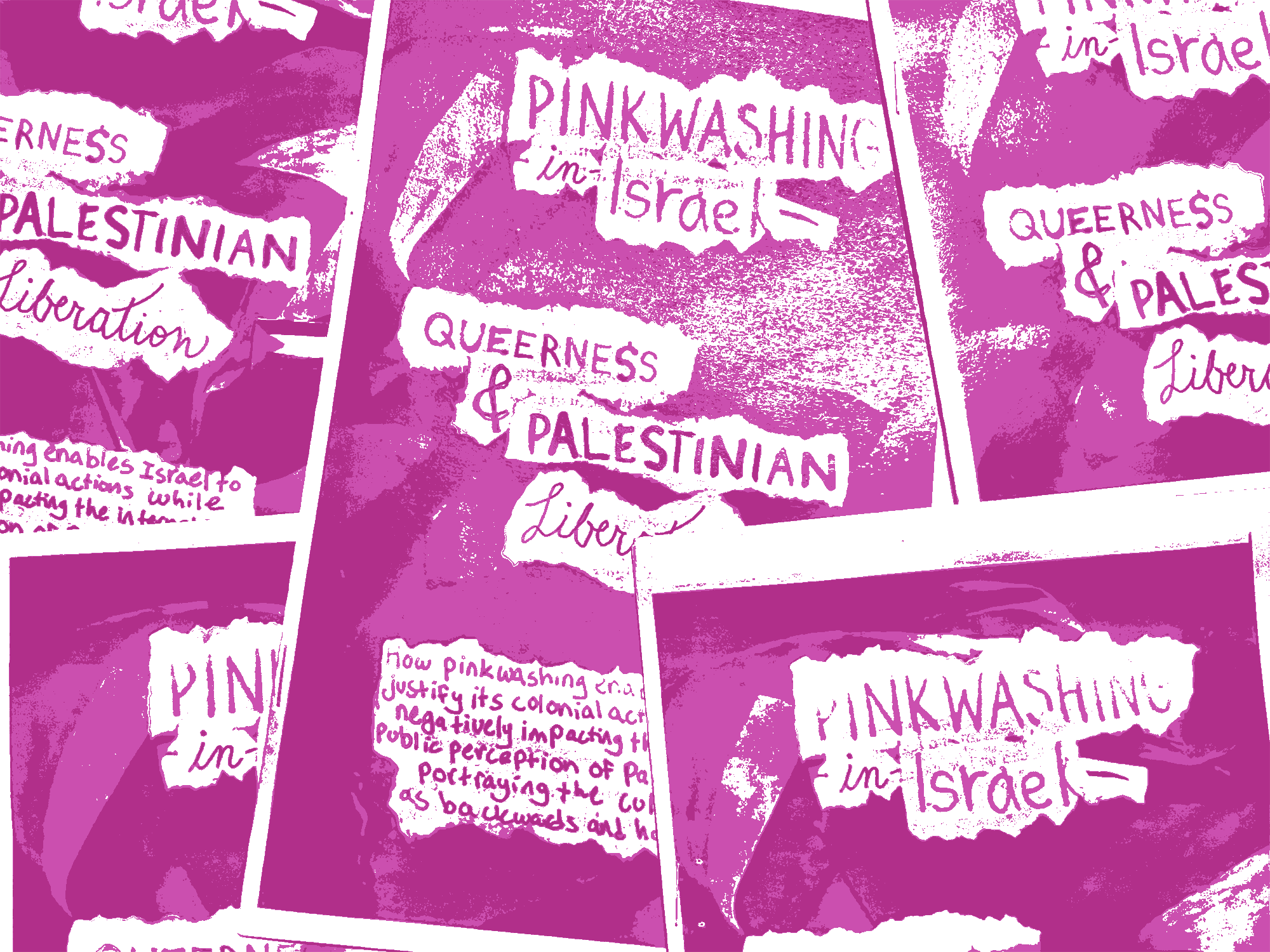
On October 5, Claremont Students for Justice in Palestine hosted a political education event focused on the “pinkwashing” of Israel. The half-hour presentation took place in an outdoor classroom on the Scripps College campus.
This was the second SJP event of the academic year. The first was September’s “Palestine 101,” an annual primer on Palestinian history and campus organizing. SJP focuses on outreach to the broader student body as part of their broader organizing, which also involves advocacy of Boycott, Divestment, and Sanctions in accordance with a 2005 call from Palestinian civil society.
Attendees grabbed snacks and copies of a freshly printed zine titled “Pinkwashing in Israel” as SJP organizers launched into their bright pink slideshow.
The organizers defined pinkwashing as a campaign by the Israeli government and affiliated groups to present Israel as a safe place for queer people. The nation is thus contrasted with Palestine and its neighboring states, which are framed as “monolithically homophobic” and “backwards.” The goal, organizers said, is “to rebrand Israel as this progressive and modern nation, instead of the reality of it being a militaristic nation based on a system of ethnoreligious supremacy.”
Their presentation included various examples of Israeli pinkwashing. Flags that superimpose a rainbow over Israel’s star and stripes are one example; global promotion of Tel Aviv as an LGBTQ+ hotspot are another. Birthright Israel, a government-sponsored program that sends Jewish young adults from North America on a free trip to Israel, has started offering trips specifically designed for a queer audience.
SJP organizers argue that these are dishonest attempts to promote Israel and disparage Palestinians. They noted in their presentation that the Israeli government does not recognize gay marriage, forcing non-heterosexual couples to get married abroad or not at all. Same-sex couples also cannot adopt children in Israel.
Conditions for queer people in Israel can also vary based on other identities. “There are records of [queer Palestinians] trying to seek asylum in Israel,” an organizer stated. “And the Israeli government will often say that these cases don’t pose any life threatening risk to Palestinians. Which is super ironic, because at the same time they’re saying that it’s unsafe to be gay in Palestine, but that they won’t help them in any way.”
Even in cases where LGBTQ+ Palestinians are granted asylum in Israel, organizers noted that they receive unequal treatment. “Being an Israeli citizen just is not the same depending on who you are,” they said, alluding to legal and de facto discrimination against Palestinian citizens of Israel as well as laws that privilege Jews over other groups. “We can’t essentialize queerness as the only form of identity. In Israel, if you have an intersecting marginalized identity, particularly if you are not Jewish or you’re a person of color, you’re not going to have the same rights as a white gay man.”
SJP organizers acknowledged that there is some truth to characterizations of Palestinian homophobia: “There’s homophobia everywhere.” But they noted that pinkwashing strategies often impose Western conceptions of queerness onto Palestinians. For example, they said, sexuality in general is not frequently discussed in Palestinian culture. Concepts like “coming out” or pride parades may not fit the Palestinian context.
Besides, one organizer said, homophobia in Palestine is worsened by Israeli occupation. “Pride parades may not be people’s first priority, because they’re still fighting for their basic needs.”
The organizers quoted Palestinian American academic Jasbir Puar, who wrote that “the production of ‘homophobia’ in a location dealing with epistemological and material violence of colonial occupation […] cannot be considered ‘cultural’ alone. Rather, it is at least in part a by-product of cultural domination.” In other words, it’s impossible to analyze homophobia as a part of Palestinian culture when that culture has been shaped by what Puar and SJP both describe as colonial violence.
Ongoing Israeli pinkwashing efforts also complicate things for queer Palestinians, organizers told the audience. Palestinians who organize against homophobia “simultaneously have to fear that the work they’re doing is going to be co-opted by Israel and just turned into pinkwashing rhetoric. Like, oh look, here’s proof that gay people aren’t safe in Palestine. So it creates this double battle for queer Palestinians.”
With all of this in mind, the SJP presentation concluded with the assertion that Palestinian liberation and queer liberation cannot be separated. “Zionism and heteronormativity have similar discourses,” an organizer said. “Both attempt to erase those who cannot be incorporated or refuse to be incorporated into the hegemonic system.”
While SJP puts on political education events, the club is also devoting substantial effort to other aspects of its Palestine solidarity organizing. Club meetings, which take place on Tuesdays at 8:00pm in the Motley Coffeehouse, generally split into groups. One group focuses on organizing efforts, while others plan for upcoming events and design presentations and flyers.
Recent organizing has centered around the violence in Palestine/Israel, and included a statement of solidarity with Palestinians published on October 8. SJP also supported a processing space hosted by the Claremont Colleges chapter of Jewish Voice for Peace, which was held on October 10.
Organizers say that political education is a big priority for SJP. “It’s important that people know what’s going on in Palestine rather than just brushing it off as complicated,” one explained.
According to attendee Carmen Navarrete PZ ‘26, this particular event was an informative success. “We, as a community, are obligated to consciously question the narratives we have been fed about queerness within Palestine, as well as the Middle East, because [they are] rooted in an oppressive, dominant, and Western agenda,” Navarrete said after the pinkwashing presentation. “To free Palestine is to circumvent this false security, and carve a path towards actual liberation for all queer identities.”
Ezra Levinson PZ ‘27 (any pronouns) covers organizing in and around the Claremont Colleges, with a particular interest in efforts to connect the colleges with the broader local and global community. Their current focuses include Palestinian and Jewish organizing as well as labor struggles.

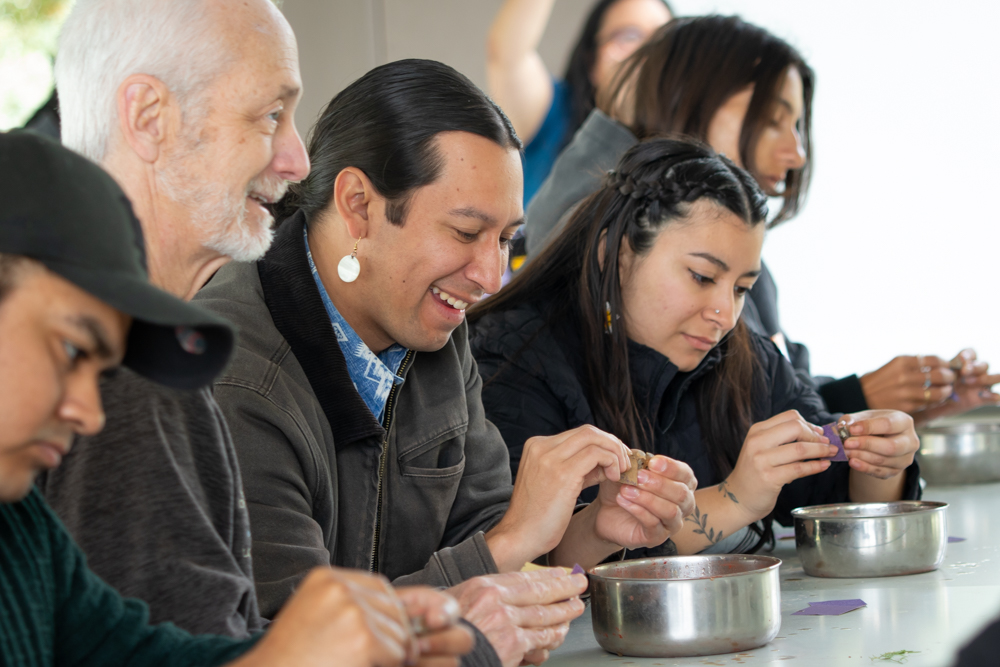
Affinity groups
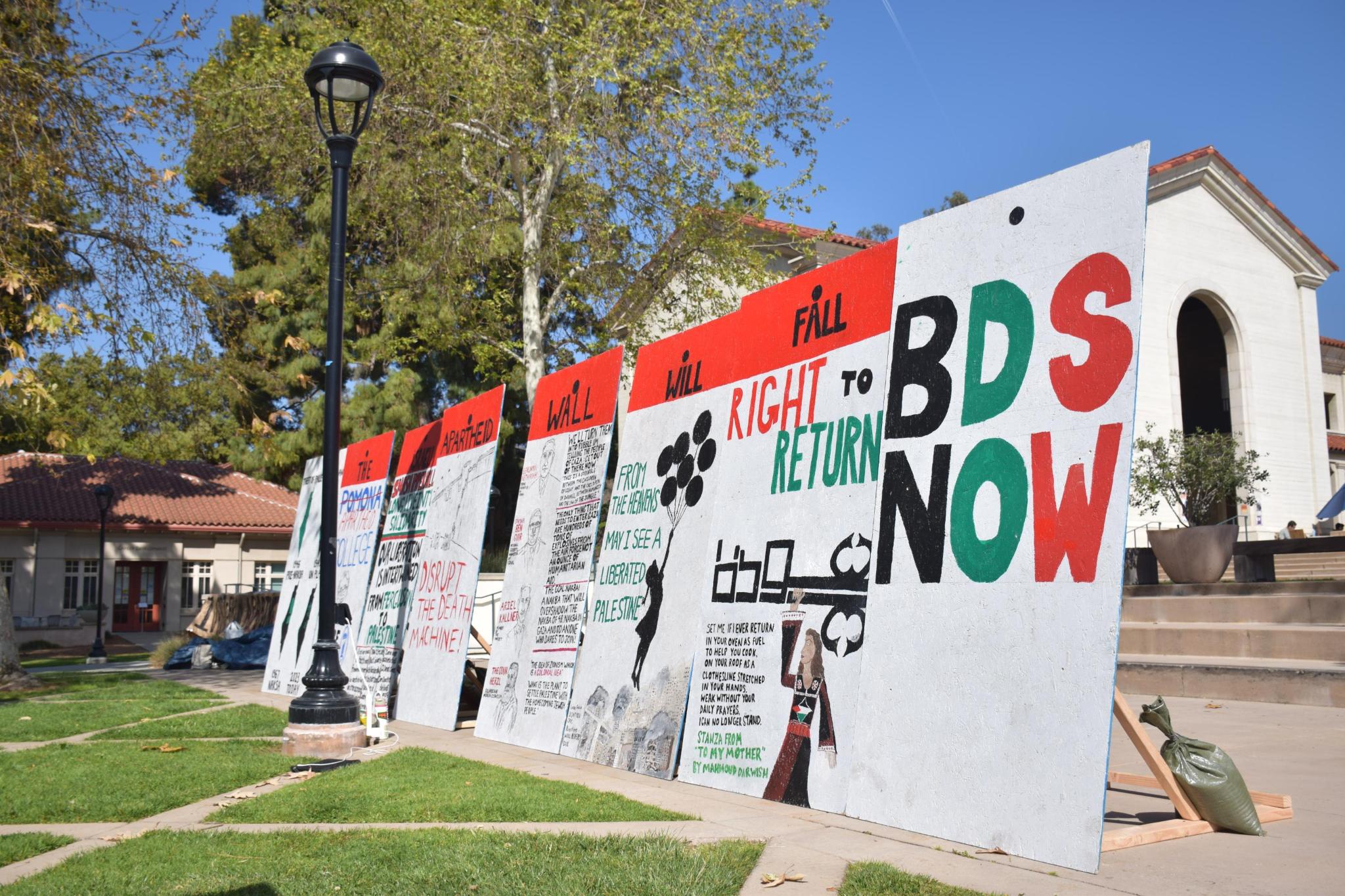
Palestine
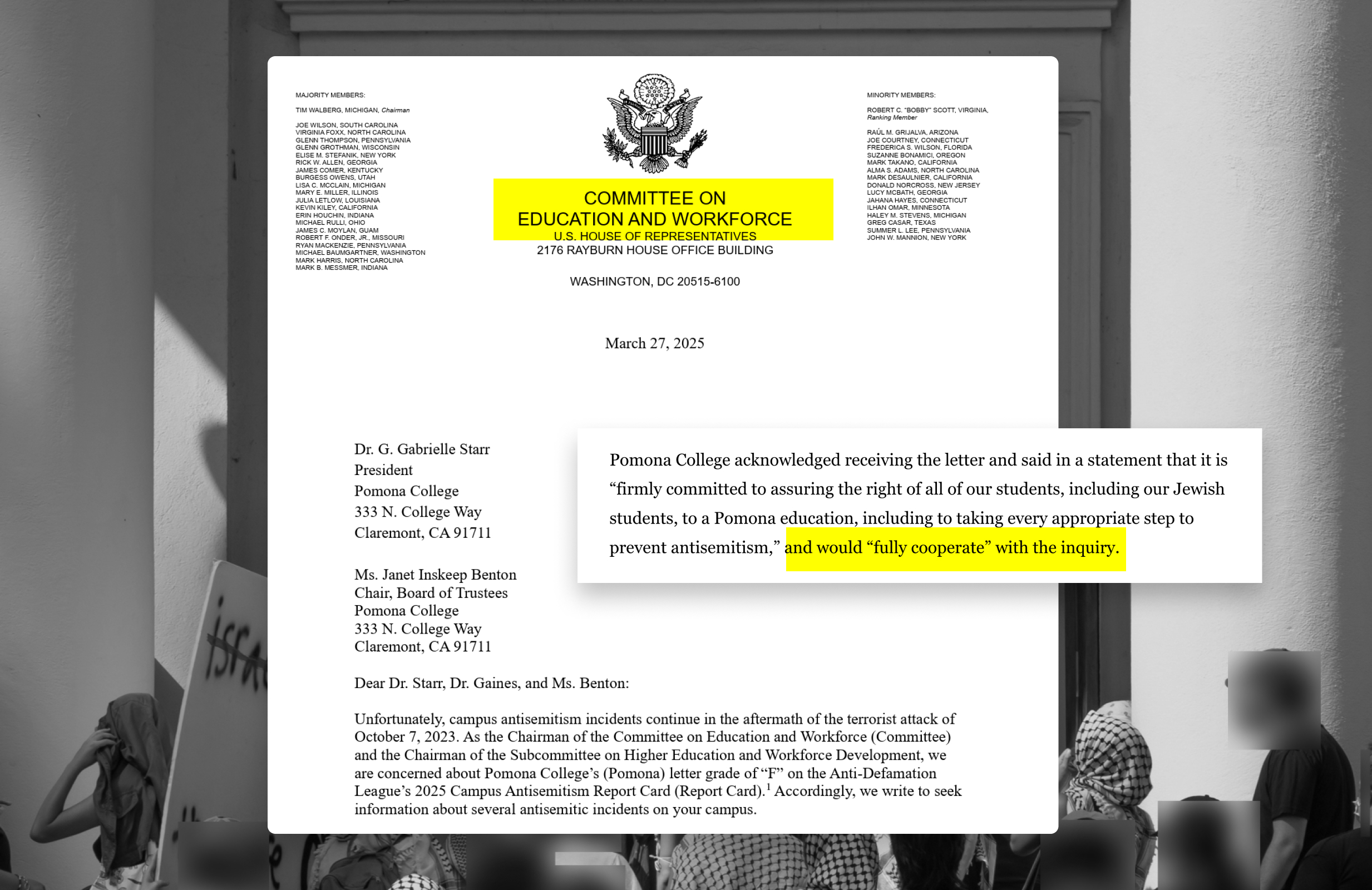
Palestine

Undercurrents reports on labor, Palestine liberation, prison abolition and other community organizing at and around the Claremont Colleges.
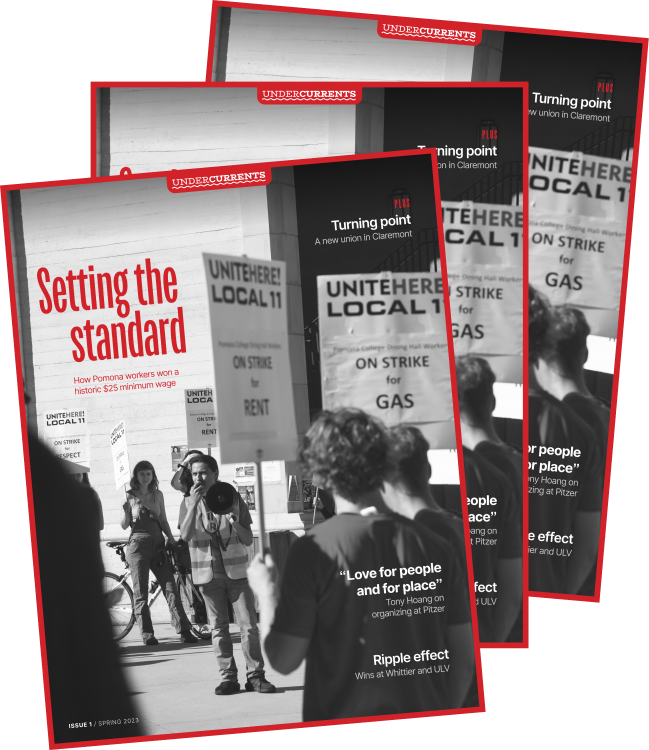
Issue 1 / Spring 2023
Setting the Standard
How Pomona workers won a historic $25 minimum wage; a new union in Claremont; Tony Hoang on organizing
Read issue 1